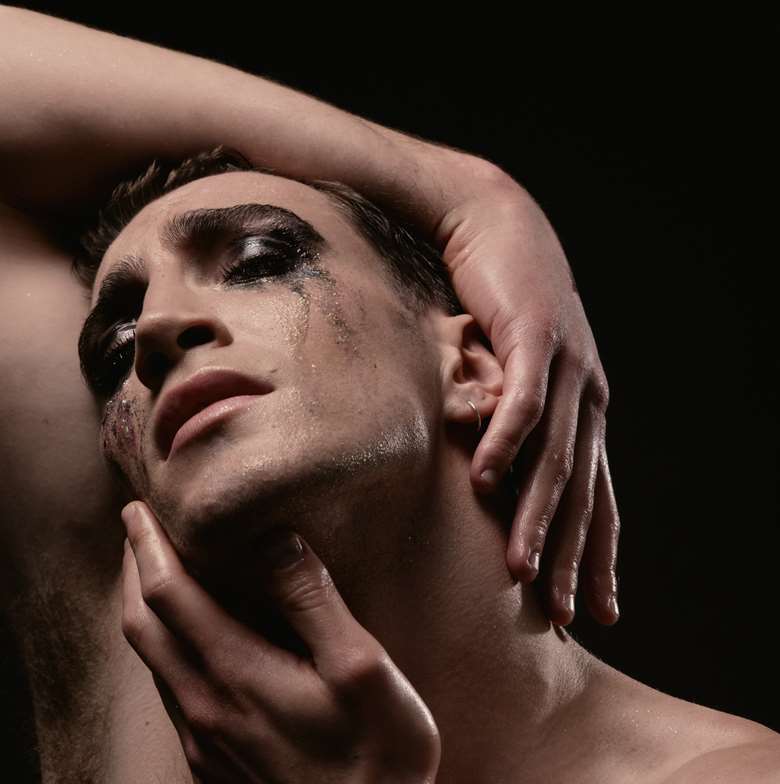Introducing Handel Opera Studio, the London Handel Festival’s new venture
Florence Lockheart
Monday, February 20, 2023
The new studio's first production builds upon Handel’s cantatas with new music, dance and immersive theatre to develop the strange world of The Realms of Sorrow. Florence Lockheart talks to opera director Adele Thomas and composer Héloïse Werner about how they created an evening of theatre out of just four songs

This week sees the launch of the 2023 London Handel Festival. Running from 23 February to 18 March, the festival will bring a wealth of Handel-inspired concerts and events to venues across the city. This year’s season will also present the first performance by the festival’s brand new in-house Handel Opera Studio, which aims to embrace imaginative and innovative interpretations of Handel’s lesser-known dramatic works. To begin with, the studio will deliver one new production every year, but the festival’s long-term aims include further works and, potentially, a tour.
The first of these new productions, In the Realms of Sorrow, will premiere next week with performances on 28 February and 1, 2 and 3 March. Opera director Adele Thomas worked closely with the festival's musical director Laurence Cummings to develop the show.
The first step in this process was choosing which of Handel’s works would be the first to receive the Handel Opera Studio treatment. Having decided to narrow the field down to Handel’s solo cantatas, Thomas’ decision took time and careful research. ‘I spent two or three weeks just listening to every single cantata that Handel had written. I listened to them while I was cooking, while I was running, while I was doing housework, and there were four that really leapt out to me.’ Those four cantatas, Il delirio amoroso (HWV 99), Armida abbandonata (HWV 105), Ero e Leandro (HWV 150) and Agrippina condotta a morire (HWV 110) became the foundations for In the Realms of Sorrow.
From there, Thomas worked with composer and soprano Héloïse Werner to link the four cantatas together to form a cohesive narrative. ‘The challenge was to work out what the performance would be, and that's where we came up with the idea of having Héloïse come in and write narrative links between each piece.’ The two created an additional character, the narrator played by countertenor James Laing, who pulls the four stories together. Werner then wrote four pieces of music to weave between the works giving space for the narrator’s exposition and transforming them into a full evening of theatre.
Opera will die if people are just trying to replicate what they think Handel should be like.
Werner drew upon her own experience of performing in opera productions as well as bringing her own quirky approach to these compositions. Her first link, embedded within Handel’s Il delirio amoroso, moves from Handel’s original work into a strange new world, before returning to the familiar cantata. ‘It's using Handel's music as a point of departure’ explains Werner, ‘to allow the narrator to invite the audience into the strange world of In the Realms of Sorrow.’
As well as adding the character of the narrator, Thomas also worked with choreographer Emma Woods to build upon the element of desire which weaves through each cantata. ‘There was lots of space in the music where it felt like there was a conversation happening between the singers and the music, and that gives room to a physical performance. Each of the characters has someone that they are yearning for but who is out of reach so we thought it'd be interesting to create a work which is almost like a pas de deux between the singer and the dancer and the music.’ Dancer Jonathan Luke Baker is a constant in each scene, shapeshifting to mould to each character’s longing.
With this added dance element and with singers and orchestral musicians interspersed among the audience, it was important to find the right space for this event. Thomas explains how the performance venue, Stone Nest in London’s West End, was ideal for this sort of immersive format. ‘The space is perfect for performance of this scale because it's incredibly intimate and it means that you can have musicians placed all over the building, sometimes even singers walking down corridors and being in separate parts of the building and still the sound carries.’ The performance space is also sensitive to the history and context of Handel’s works. ‘These pieces were originally commissioned for groups of cognoscenti Italian gentlemen. There was something about the illicit private secret nature of the way that these pieces were commissioned, and the fact that the Stone Nest used to be a nightclub, the space of an ecstatic coming together, that felt really right.’
As Handel Opera Studio’s first production, In the Realms of Sorrow undoubtedly fulfils the studio’s aim of presenting fresh and exciting interpretations of Handel’s works, but is Thomas worried that this new performance might stray too far from the source material? Absolutely not. ‘Opera will die if people are just trying to replicate what they think Handel should be like. That's not really making art, that’s like taxidermy. It's like you dredged Handel up and you've put him in formaldehyde. All you can do is be as true to the artist that you need to be and as true to the art as possible.’
In the Realms of Sorrow, starring countertenors James Laing and Patrick Terry, sopranos Nardus Williams, Soraya Mafi and Claire Booth and dancer Jonathon Luke Baker, opens at Stone Nest on 28 February, with performances on 1, 2 and 3 March. Tickets can be found here.